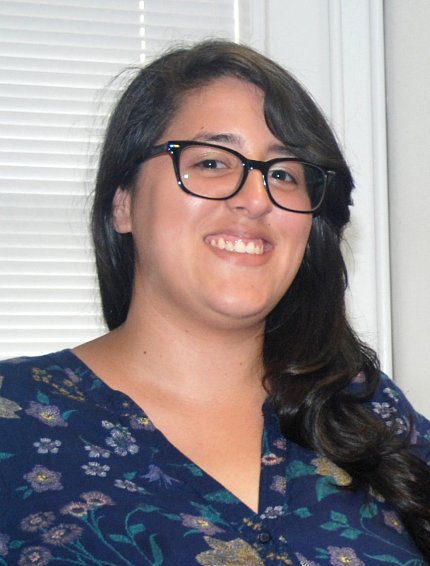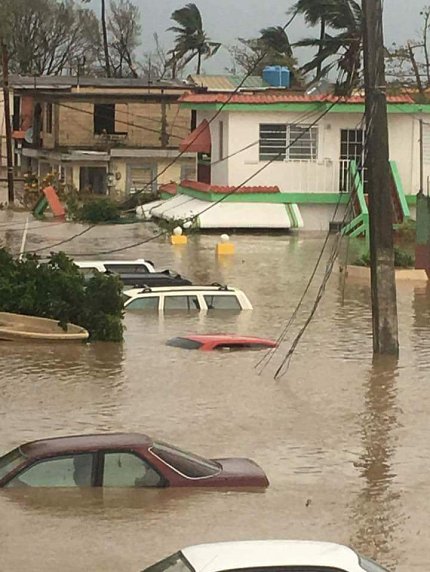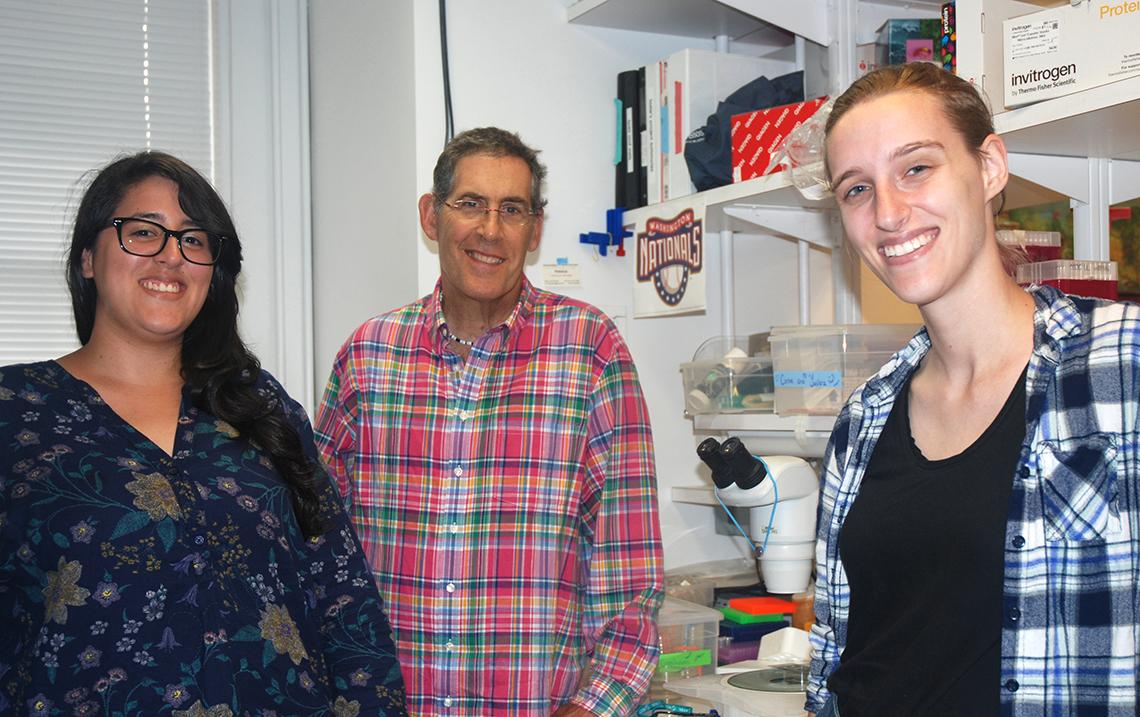Intern from Puerto Rico Receives Governor’s Medal

Photo: Dana Talesnik
Yashira Ortega-Sustache was planning to apply for an NIH internship when Hurricane Maria struck Puerto Rico last September. The category 5 hurricane destroyed her father’s small business, damaged the family’s home and left them without power for months. Nearly a year later, her home is still without internet access, which she needed to complete and submit her NIH application.
“It really was a miracle for me to come here,” she said. “Now, I’m getting to do something I really love.”
Ortega-Sustache is pursuing a double major in biology and nursing at the University of Puerto Rico. In June, she arrived at NIH, where she spent 2 months studying gene mutations in NIDDK’s Laboratory of Biochemistry and Genetics as part of C-SOAR (College Summer Opportunities to Advance Research).
“Yashira is helping to develop a nematode model for the ultra-rare disease NGLY1 deficiency,” said Carina Graham, a postbac fellow at NIDDK. “She’s replicated patient alleles with CRISPR-Cas9 genome editing, run drug assays and confocal microscopy experiments to analyze phenotypes and helped quantify the robustness of potential suppressing mutations. She’s a truly special student on an amazing journey; I’m consistently impressed with her eagerness, persistence and work ethic.”
This is Ortega-Sustache’s first time in the Washington metropolitan area and her first experience doing lab research, an opportunity that almost seemed out of reach after the hurricane.
Determined, Ortega-Sustache applied for the internship by using the internet connection at University Pediatric Hospital in San Juan, where she has volunteered as a clinical research assistant for 3 years. One of her recent projects at the hospital earned her the Puerto Rican Governor’s Medal of Honor. Ortega-Sustache was already at NIH for her internship when the award ceremony took place, so her mother accepted the medal for her.

The award-winning project started out as simple data entry of medical records. For 2 years, Ortega-Sustache worked with Dr. Enid Rivera-Jimenez, a pediatric hematologist at the hospital, in compiling a database of children who had sickle cell anemia or Hermansky-Pudlak, a rare syndrome characterized by albinism. During this time, Ortega-Sustache contacted the parents of each patient to confirm the records were accurate and current and to identify patients’ medical needs.
After the hurricane, clinicians used the database to track down families and either visit patients’ homes to provide care or bring them to the hospital for treatment. The list allowed the medics volunteering with hurricane relief efforts to provide critical care when phone and power lines and internet were down after the storm hit.
“I didn’t do this project because I wanted to have an award,” Ortega-Sustache said. “I did this because I want to help people; that’s my goal. I’ve been [involved] in different [volunteer] organizations because I want to help the community and people who are really in need.”
Ortega-Sustache has participated in community service projects for 8 years, from high school and college fundraisers benefitting sick children to visiting with pediatric cancer patients in the hospital playroom. Last year, as president of the Student Pediatric Association at her university, she organized community activities such as visits to critically ill children and started a project to establish a home for abused children. She also worked as part of a council that represented youth at the Puerto Rico department of health.
Ortega-Sustache returns to Puerto Rico this month to embark on a 2-year nursing program toward her dual degree.
“I’m glad to have this lab experience [at NIH] to help me decide whether I want to pursue a doctorate,” she said. “I’m still figuring it out. After I finish school, my goal is to come back and work at NIH.”

Photo: Dana Talesnik
